January means Surva, the residents of the Bulgarian city of Pernik say. This is so, because each year on the last Saturday and Sunday of January the city plays host to the International Festival of Masquerade Games Surva. The 28th edition of the carnival will welcome over 7,500 participants. 102 masquerade groups will show masks from all Bulgarian ethnographic areas. 19 groups from Macedonia, Russia, Portugal, Italy, Serbia, Romania, Greece, Slovenia and Turkey will present their national customs as well. The interest in Surva folk festival has increased and this year over 1,300 children will sink into the magic of masquerade traditions and rituals.
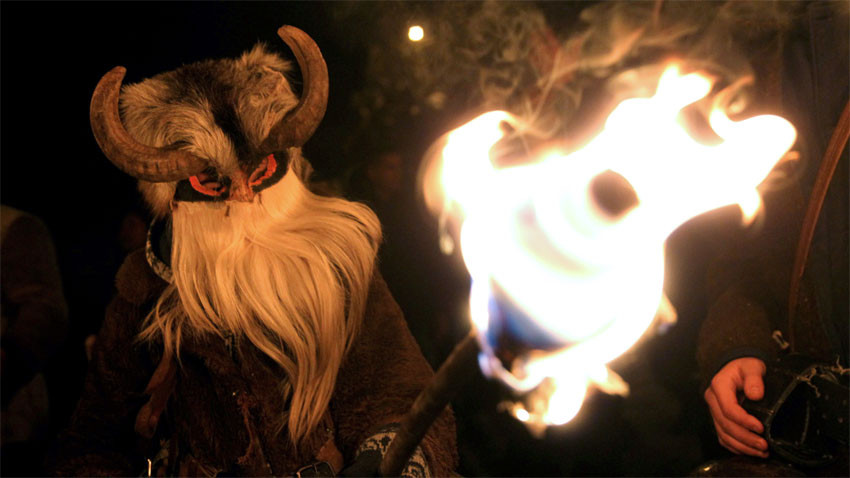
Surva folk fesitval is the fourth Bulgarian element included in the UNECO list of Intangible Cultural Heritage together with the Bistritsa Grannies, Fire Dancing (Nestinarstvo) and the carpet-making tradition of Chiprovtsi. Each year on January 14 many survakars and mummers join the masquerade games in the city of Pernik (Southwest Bulgaria) to mark the New Year according to the old calendar. Ludmil Yordanov is a third generation keeper of this tradition. He told Radio Bulgaria that in some Bulgarian regions such as in the Pernik area these people are called mechkari (bear-wards) or survakari (boys going from house to house wishing people a happy New Year). In other parts of Bulgaria they are known as kukeri (mummers).
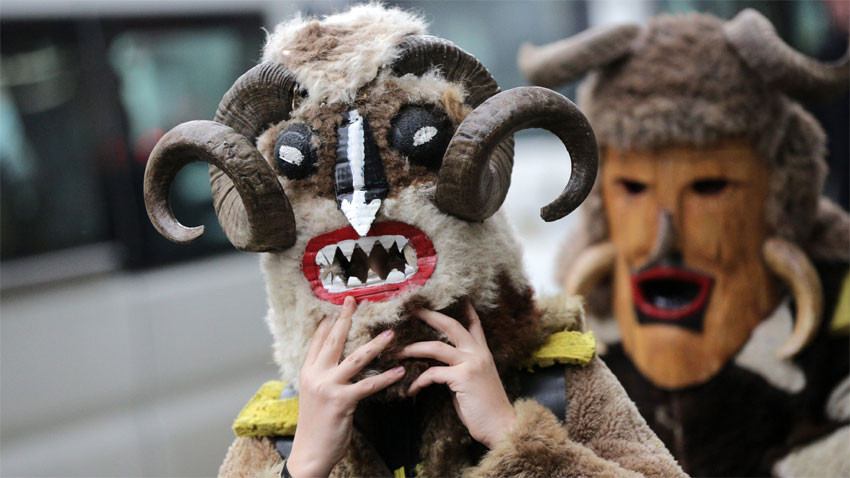
The roots of this authentic tradition are hidden in the pagan rituals inherited from the remote past. The custom begins on the evening of January 13 when mummers build huge bonfires. According to beliefs, the fire lit by the mummers purifies, revives and vitalizes.
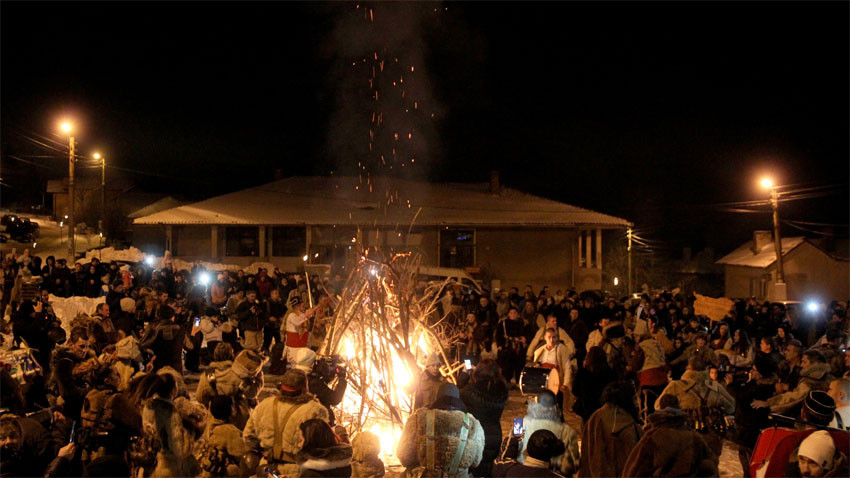
The Surva tradition has been passed down from fathers to sons for many centuries. Ludmil Yordanov dressed as a mummer for the first time when he was only a three-year old boy back in 1993. He joined the festivities together with his seven-year-old brother and his grandfather. His family members have been making the masks and the costumes for Surva festival for a very long time. The preparations for Surva begin several months earlier:
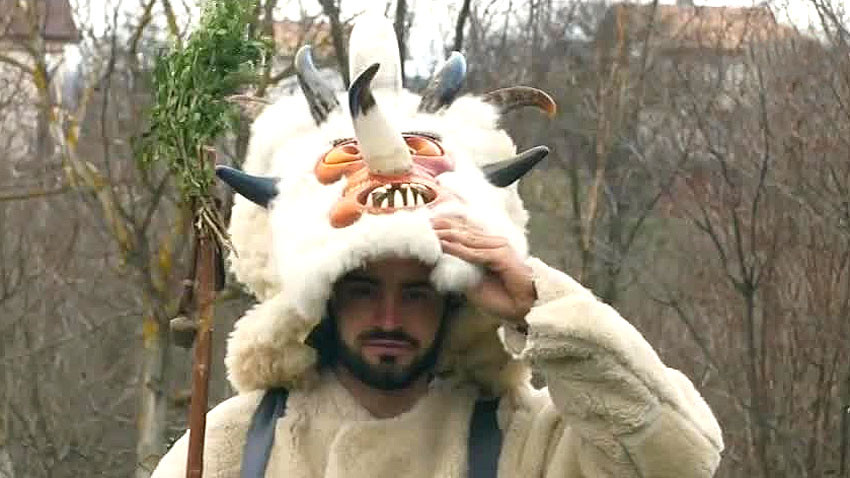
The old costumes are renewed on a regular basis and the accent falls on the make of new mummer’s masks, Ludmil Yordanov explains. In Pernik region the masquerade group gathers in specially-designed premises called mechkarnitsa. Everyone brings the necessary materials and the participants prepare for Surva festival. Each mask looks different and unique. We are not following any plan or schedule. The people make everything they need for the festival.
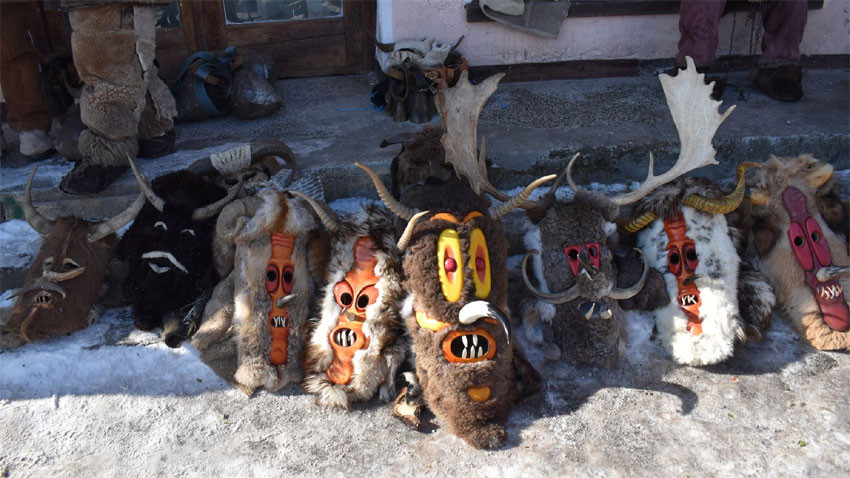
The mummer’s masks are huge and scary. According to beliefs, they must be kept secret until the beginning of the festival. Otherwise, they would lose their magical power. Ludmil Yordanov explains that the main purpose of the mummer’s mask is to chase evil spirits away and look as scarier as possible.
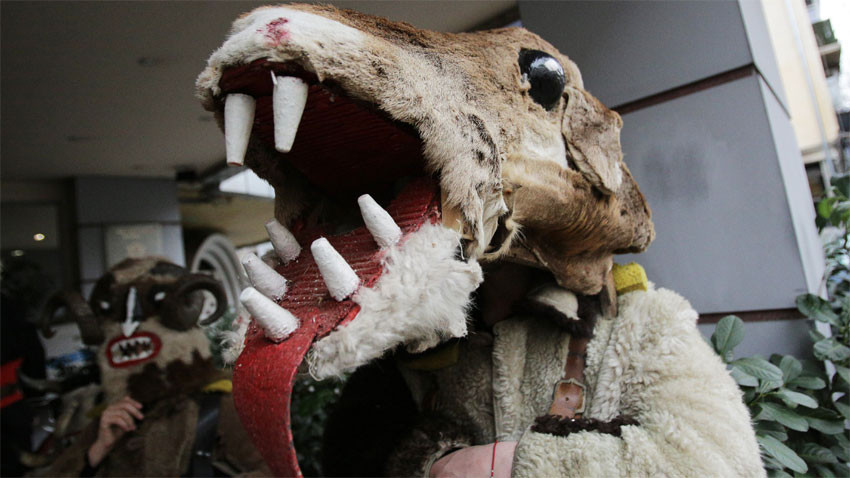
Our mummer’s masks are made entirely of natural materials-wood, fur and horn, Ludmil explains. Our family makes the construction of the masks mainly from red willow (Salix purpurea), because it is very light and elastic. It is covered with animal fur-sheep, goat, rabbit fur, etc. The mummer’s mask is completed when the scary horns taken from animals which are not endangered with extinction are attached to it. It is good to know that mummery is not performed by barbarians who kill animals.
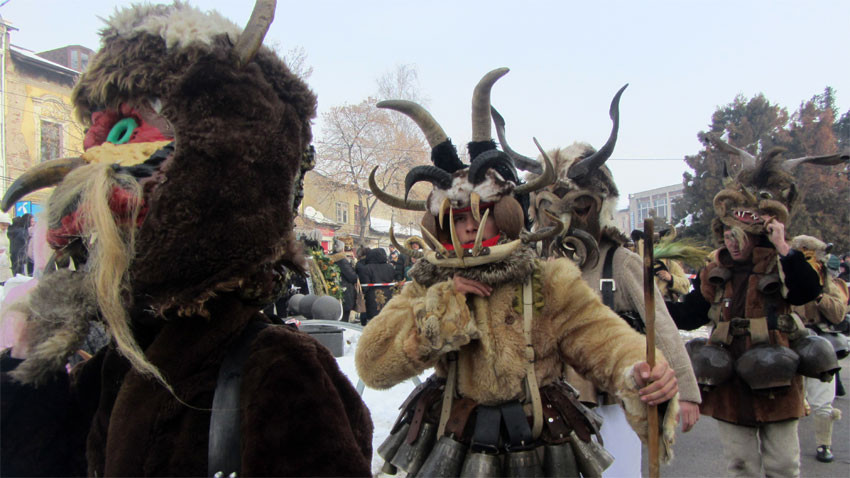
According to Ludmil Yordanov, people can make their own costumes and masks for Surva, if they have the will and put their heart and soul into it. Red is the main color of the costumes, because according to beliefs, it chases evil spirits away. Each masquerade group makes the mummer’s mask and costumes their own way using different materials-rugs, feathers, beads, animal fur, etc. That is why the mummers are so colorful and different in our small country, Ludmil explains.
This colorful custom is filled with symbolism. People are looking forward to meeting with the mummers who chase evil away with their rituals, dances and the sound of their bells and bring sound health, prosperity and fertility.
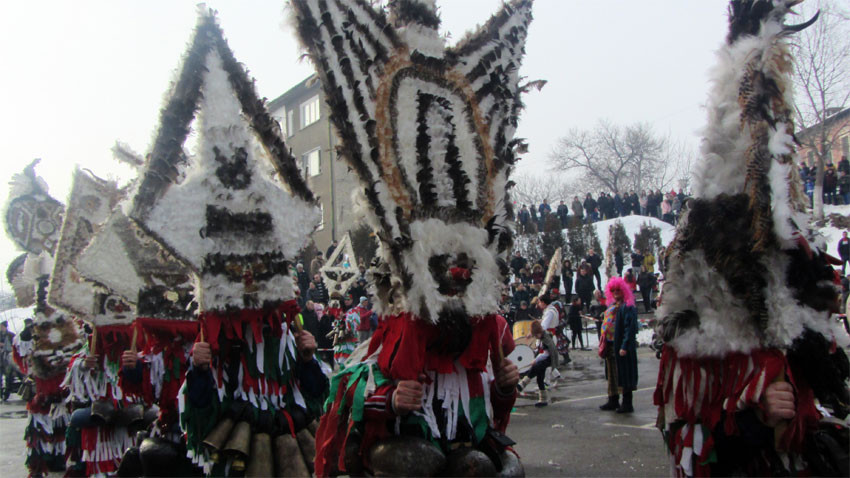
Our masquerade groups from the village of Selishten Dol starts going about the houses early in the morning. The mummers chase away evil spirits with the resonant and harmonious sound of their bells. They dance for health and fertility. When the group visits all houses it gathers on the village or the town square. The common table is also a mandatory element of the biggest festival in Pernik region.

The masquerade tradition in the region of Pernik grew into a festival in 1966. Gradually, it became a national festival and since 1985 it gained a status of an international festival. Pernik is a member of the Federation of European Carnival Cities and in 2009 it was declared a European Capital of Mummer and Surva Traditions.
This year the popular Surva festival will be held between January 25 and 27.
English version: Kostadin AtanasovOn February 2, according to the Bulgarian folk calendar, it is Petlyovden (Rooster Day) - a day dedicated to the health and fertility of male offspring. It is most widely popular in Eastern Bulgaria. One of the obligatory elements is the..
Wine will spout from two drinking fountains over the weekend in Delchevo. Perched on top of the mountain, the village located close to Gotse Delchev, has made a name for itself as a tourist attraction with its ancient architecture and the beautiful..
At the beginning of each year, The Bulgarian city of Razlog and the surrounding villages start feverish preparations for Babinden or Midwives’ Day. The holiday is dedicated to the “grannies” who helped women give birth. Every year it is celebrated on..

+359 2 9336 661
